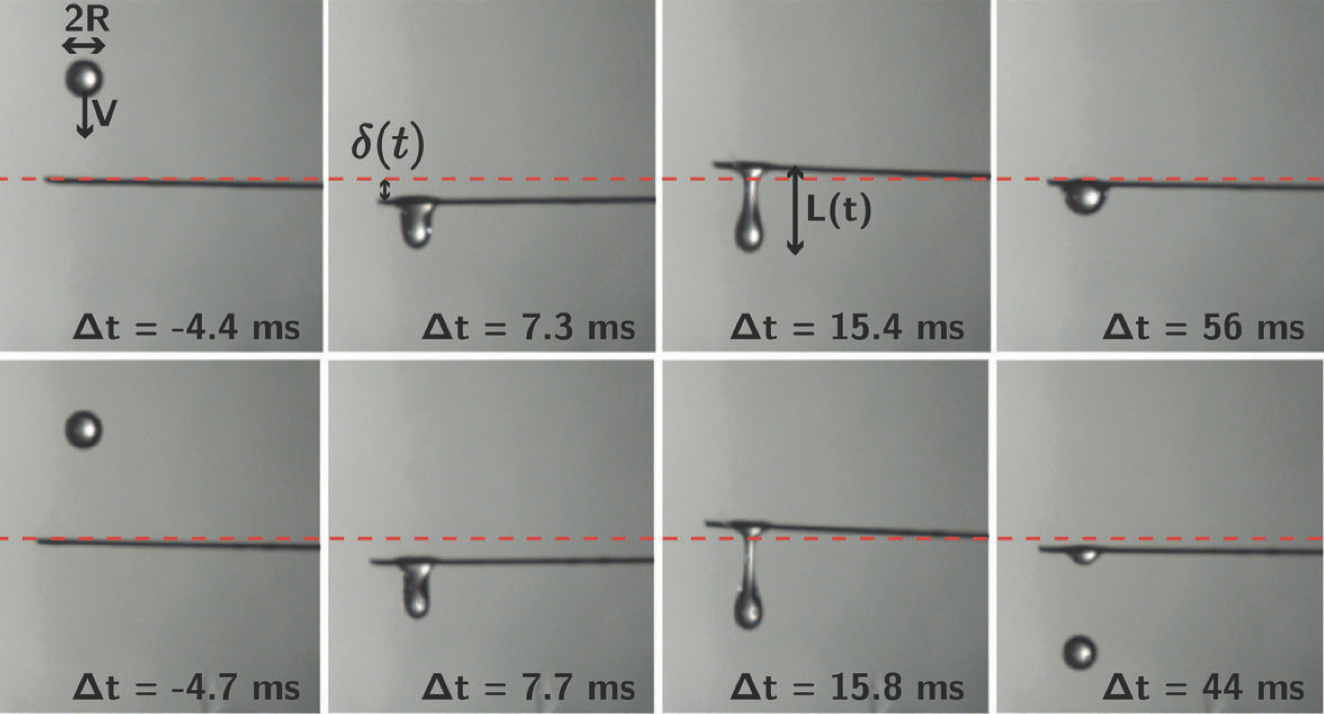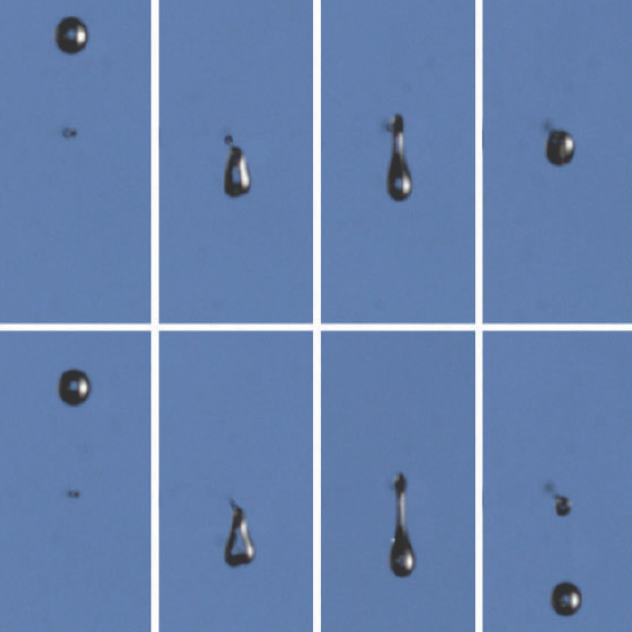
When a drop impacts a thin fiber, a critical impact speed can be defined, below which the drop is entirely captured by the fiber, and above which the drop pinches-off and fractures. We discuss here the capture dynamics of both inviscid and viscous drops on flexible fibers free to deform following impact. We characterize the impact-induced elongation of the drop thread for both high and low viscosity drops, and show that the capture dynamics depends on the relative magnitudes of the bending time of the fiber and deformation time of the drop. In particular, when these two timescales are comparable, drop capture is less prevalent, since the fiber rebounds when the drop deformation is maximal. Conversely, larger elasticity and slower bending time favor drop capture, as fiber rebound happens only after the drop has started to recoil. Finally, in the limit of highly flexible fibers, drop capture depends solely on the relative speed between the drop and the fiber directly after impact, as is prescribed by the momentum transferred during impact. Because the fiber speed directly after impact decreases with increasing fiber length and fiber mass, our study identifies an optimal fiber length for maximizing the efficiency of droplet capture.
See paper: Comtet, J., Kesharvaz, B. and Bush, J.W.M. (2015)
